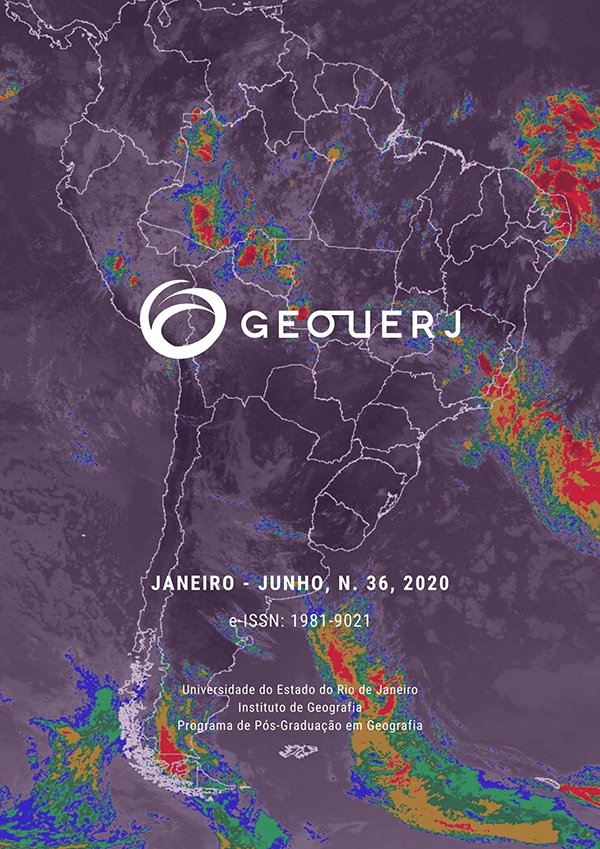ANÁLISE SOBRE A EFICÁCIA DA OPERAÇÃO URBANA CONSORCIADA E DA OUTORGA ONEROSA DO DIREITO DE CONSTRUIR PARA O DESENVOLVIMENTO DE PERIFERIAS INTRAMUNICIPAIS
DOI:
https://doi.org/10.12957/geouerj.2020.47273Palavras-chave:
Direito Urbanístico. Desenvolvimento urbano. Política urbana. Periferia urbana. CidadesResumo
O objetivo deste artigo é compreender em que medida a condição periférica de certas áreas intramunicipais pode comprometer a capacidade de instrumentos de política urbana de gerarem os efeitos que deles são esperados nessas áreas. Por meio de investigação bibliográfica e de coleta de dados, foram analisados os instrumentos da operação urbana consorciada e da outorga onerosa do direito de construir, observando, em particular, as experiências com ambos os instrumentos nos municípios do Rio de Janeiro e de São Paulo. Com base na matriz de produção social do espaço e em uma abordagem institucionalista, a análise realizada evidenciou que os instrumentos investigados, particularmente o caso das operações urbanas consorciadas, deparam-se com limitações institucionais, no espaço urbano, capazes de comprometer sua viabilidade como importantes alternativas de indução do desenvolvimento urbano em grandes periferias intramunicipais. Foi possível constatar que remanescem como desafios comuns, para a eficácia desses instrumentos, o aumento de controle social, a necessidade de redesenho institucional voltado à ampliação de capacidades políticas e redistributivas, assim como a maior projeção das periferias urbanas como categoria de análise institucional.Downloads
Não há dados estatísticos.
Downloads
Publicado
2020-02-14
Como Citar
CRUZ, Carlos Eduardo de Souza. ANÁLISE SOBRE A EFICÁCIA DA OPERAÇÃO URBANA CONSORCIADA E DA OUTORGA ONEROSA DO DIREITO DE CONSTRUIR PARA O DESENVOLVIMENTO DE PERIFERIAS INTRAMUNICIPAIS. Geo UERJ, Rio de Janeiro, n. 36, p. e47273, 2020. DOI: 10.12957/geouerj.2020.47273. Disponível em: https://www.e-publicacoes.uerj.br/geouerj/article/view/47273. Acesso em: 5 fev. 2026.
Edição
Seção
Políticas Públicas e Território: análise da agenda pública na segunda década do século XXI
Licença
Os Direitos Autorais dos artigos publicados na Revista Geo UERJ pertencem aos seus respectivos autores, com os direitos de primeira publicação cedidos à Revista. Toda vez que um artigo for citado, replicado em repositórios institucionais e/ou páginas pessoais ou profissionais, deve-se apresentar um link para o artigo disponível no site da Geo UERJ.

Os trabalhos publicados estão simultaneamente licenciados com uma Licença Commons BY-NC-SA 4.0.


